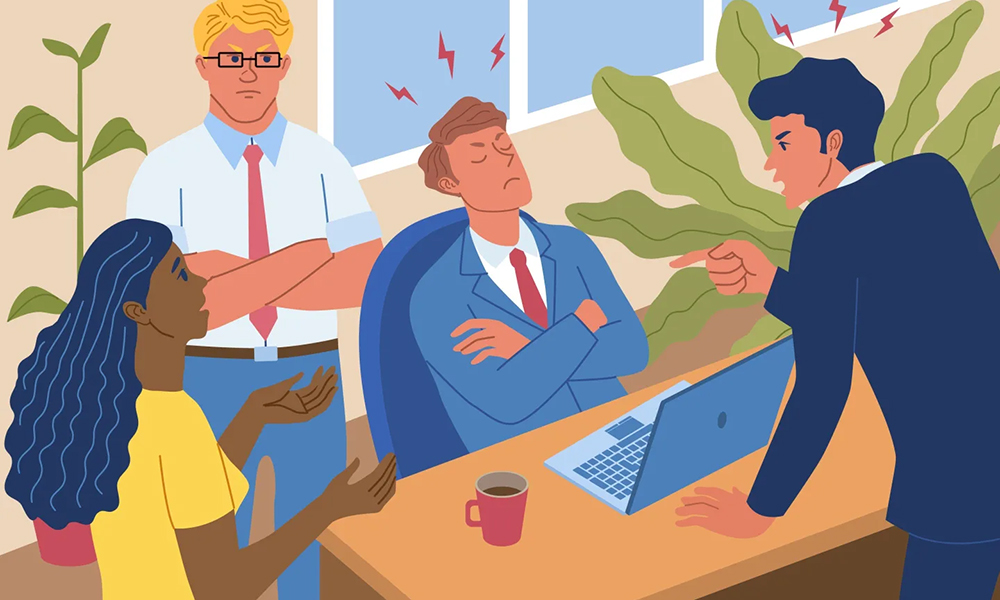
事實(shí)證明,,你可能需要對疲倦的同事寬容一些,。
在《PLOS生物學(xué)》(PLOS Biology)雜志發(fā)表的一篇同行審議論文中,來自加州大學(xué)伯克利分校(University of California, Berkeley)的研究人員表示,,他們發(fā)現(xiàn)了睡眠不足與自私之間的潛在聯(lián)系,。
睡眠不足除了會(huì)使人精力下降以外,還會(huì)對身體產(chǎn)生影響,,例如縮短注意力持續(xù)時(shí)間,、不良決策和記憶力衰退等,但加州大學(xué)伯克利分校的研究認(rèn)為,,睡眠不足還會(huì)消磨人們的利他主義傾向,。
研究發(fā)現(xiàn),少睡一個(gè)小時(shí)便足以摧毀人們幫助他人的意愿,包括家人和親密好友,。
研究團(tuán)隊(duì)通過一系列實(shí)驗(yàn)來確定睡眠與自私之間的聯(lián)系,。
首先,他們分析了人們在充分睡眠和睡眠不足之后的行為,,結(jié)果發(fā)現(xiàn)78%的受試者在睡眠不足時(shí)“幫助他人的意愿下降”,。
研究人員指出,這種影響在所有受試者當(dāng)中普遍存在,,不受受試者的情緒,、精力或者是否有同理心等因素的影響。
他們還表示:“睡眠不足導(dǎo)致人們幫助他人的意愿下降的影響非常明顯,,無論是幫助陌生人還是熟人(比如朋友或同事),。”
“這意味著與需要幫助的人(例如朋友或者陌生人)是否熟悉,,似乎并不能免于受到與睡眠不足相關(guān)的利他行為意愿下降的影響,。”
研究人員還進(jìn)行了大腦掃描,,要求受試者填寫行為調(diào)查表,,并監(jiān)測了美國調(diào)整到夏令時(shí)(Daylight Savings Time)導(dǎo)致美國人睡眠時(shí)間減少一小時(shí)的時(shí)候慈善捐款有何變化。
核磁共振(MRI)掃描分析發(fā)現(xiàn),,睡眠不足和大腦中與開展“親社會(huì)行為”有關(guān)的部分活動(dòng)減少之間的聯(lián)系,。親社會(huì)行為是指令其他人或全社會(huì)受益的行為。
受試者自行報(bào)告了睡眠持續(xù)時(shí)間和次日的行為,。這些行為調(diào)查發(fā)現(xiàn),,睡眠效率不佳與次日幫助他人的意愿下降之間存在聯(lián)系。
此外,,研究人員發(fā)現(xiàn)調(diào)整到夏令時(shí)“使整個(gè)社會(huì)層面幫助他人的現(xiàn)實(shí)行為減少,。”
科學(xué)家們分析了2001年至2016年,,在遵守夏令時(shí)的美國各州每年春季調(diào)整到夏令時(shí)期間的300多萬美元慈善捐款,。
研究人員說:“與調(diào)整到夏令時(shí)前后幾周相比,在進(jìn)行調(diào)整期間人們利他的捐款決策顯著減少,?!?/p>
他們表示:“三項(xiàng)研究的結(jié)果均證明,睡眠不足(睡眠時(shí)間和質(zhì)量方面)對于人們是否愿意幫助他人并且能夠付諸行動(dòng),,具有負(fù)面的影響,。”
“這種影響不容小覷,,因?yàn)槿祟惖幕突ブ鷮S持相互合作的文明社會(huì)至關(guān)重要,,而且在許多發(fā)達(dá)國家,睡眠不足的比例不斷提高?!保ㄘ?cái)富中文網(wǎng))
譯者:劉進(jìn)龍
審校:汪皓
事實(shí)證明,,你可能需要對疲倦的同事寬容一些。
在《PLOS生物學(xué)》(PLOS Biology)雜志發(fā)表的一篇同行審議論文中,,來自加州大學(xué)伯克利分校(University of California, Berkeley)的研究人員表示,,他們發(fā)現(xiàn)了睡眠不足與自私之間的潛在聯(lián)系。
睡眠不足除了會(huì)使人精力下降以外,,還會(huì)對身體產(chǎn)生影響,,例如縮短注意力持續(xù)時(shí)間、不良決策和記憶力衰退等,,但加州大學(xué)伯克利分校的研究認(rèn)為,,睡眠不足還會(huì)消磨人們的利他主義傾向。
研究發(fā)現(xiàn),,少睡一個(gè)小時(shí)便足以摧毀人們幫助他人的意愿,,包括家人和親密好友。
研究團(tuán)隊(duì)通過一系列實(shí)驗(yàn)來確定睡眠與自私之間的聯(lián)系,。
首先,,他們分析了人們在充分睡眠和睡眠不足之后的行為,結(jié)果發(fā)現(xiàn)78%的受試者在睡眠不足時(shí)“幫助他人的意愿下降”,。
研究人員指出,,這種影響在所有受試者當(dāng)中普遍存在,不受受試者的情緒,、精力或者是否有同理心等因素的影響,。
他們還表示:“睡眠不足導(dǎo)致人們幫助他人的意愿下降的影響非常明顯,無論是幫助陌生人還是熟人(比如朋友或同事),?!?/p>
“這意味著與需要幫助的人(例如朋友或者陌生人)是否熟悉,似乎并不能免于受到與睡眠不足相關(guān)的利他行為意愿下降的影響,。”
研究人員還進(jìn)行了大腦掃描,,要求受試者填寫行為調(diào)查表,,并監(jiān)測了美國調(diào)整到夏令時(shí)(Daylight Savings Time)導(dǎo)致美國人睡眠時(shí)間減少一小時(shí)的時(shí)候慈善捐款有何變化。
核磁共振(MRI)掃描分析發(fā)現(xiàn),,睡眠不足和大腦中與開展“親社會(huì)行為”有關(guān)的部分活動(dòng)減少之間的聯(lián)系,。親社會(huì)行為是指令其他人或全社會(huì)受益的行為。
受試者自行報(bào)告了睡眠持續(xù)時(shí)間和次日的行為,。這些行為調(diào)查發(fā)現(xiàn),,睡眠效率不佳與次日幫助他人的意愿下降之間存在聯(lián)系。
此外,研究人員發(fā)現(xiàn)調(diào)整到夏令時(shí)“使整個(gè)社會(huì)層面幫助他人的現(xiàn)實(shí)行為減少,?!?/p>
科學(xué)家們分析了2001年至2016年,在遵守夏令時(shí)的美國各州每年春季調(diào)整到夏令時(shí)期間的300多萬美元慈善捐款,。
研究人員說:“與調(diào)整到夏令時(shí)前后幾周相比,,在進(jìn)行調(diào)整期間人們利他的捐款決策顯著減少?!?/p>
他們表示:“三項(xiàng)研究的結(jié)果均證明,,睡眠不足(睡眠時(shí)間和質(zhì)量方面)對于人們是否愿意幫助他人并且能夠付諸行動(dòng),具有負(fù)面的影響,?!?/p>
“這種影響不容小覷,因?yàn)槿祟惖幕突ブ鷮S持相互合作的文明社會(huì)至關(guān)重要,,而且在許多發(fā)達(dá)國家,,睡眠不足的比例不斷提高?!保ㄘ?cái)富中文網(wǎng))
譯者:劉進(jìn)龍
審校:汪皓
Turns out you may actually need to cut your tired coworker some slack.
In a peer-reviewed paper published in the journal PLOS Biology, researchers from the University of California, Berkeley, said they had found a potential link between disrupted sleep and selfishness.
Aside from reducing our energy levels, sleep deprivation is also?known to trigger physical effects like a reduced attention span, poor decision making, and worsened memory—but according to the Berkeley study, it could also be killing our altruistic tendencies.
The study found that losing just one hour of sleep could be enough to destroy our willingness to help others—even family and close friends.
The research team ran a series of experiments to determine a link between sleep and selfishness.
First, they analyzed people’s behavior after a good night’s sleep and a night’s sleep of deprivation, finding that 78% of participants demonstrated “a reduction in the desire to help others” when they had lost out on sleep.
The effect was consistent among all participants, researchers noted, regardless of their mood, energy levels, or whether they were empathetic individuals.
“The withdrawal of helping caused by sleep loss was significant no matter whether the circumstance involved helping a stranger or helping someone familiar (i.e. friends/colleagues),” they added.
“This would suggest that familiarity with the individual in need of help (e.g., a friend versus stranger) does not appear to confer immunity against the sleep loss-associated reduction in the desire to act altruistically.”
They then carried out brain scans, asked participants to fill in behavior surveys, and monitored changes to charitable donations when Americans lost an hour of sleep in the switch to Daylight Savings Time (DST).
MRI scan analyses found a link between sleep loss and reduced activity in the part of the brain associated with engaging in “prosocial behaviors”—behaviors that benefit other people or society as a whole.
The behavioral surveys, where participants self-reported their sleep duration and next-day behavior, found that worse sleep efficiency was associated with decreases in the desire to help others the following day.
Meanwhile, researchers found that the transition to DST, “decreases real-world behavioral acts of altruistic helping at a larger societal level.”
Scientists analyzed more than 3 million charitable donations made between 2001 and 2016 in the U.S. during the transition to DST in the spring of each year in states that observed DST.
“The transition to DST was associated with a significant decrease in the altruistic decision to give away money (make donations) compared to the weeks either before or after the transition,” researchers said.
“Findings across all three studies establish insufficient sleep (both quantity and quality) as a degrading force influencing whether or not humans wish to help each other, and do indeed, choose to help each other,” they added.
“The implications of this effect may be non-trivial when considering the essentiality of human helping in the maintenance of cooperative, civil society, combined with the reported decline in sufficient sleep in many first-world nations.”






